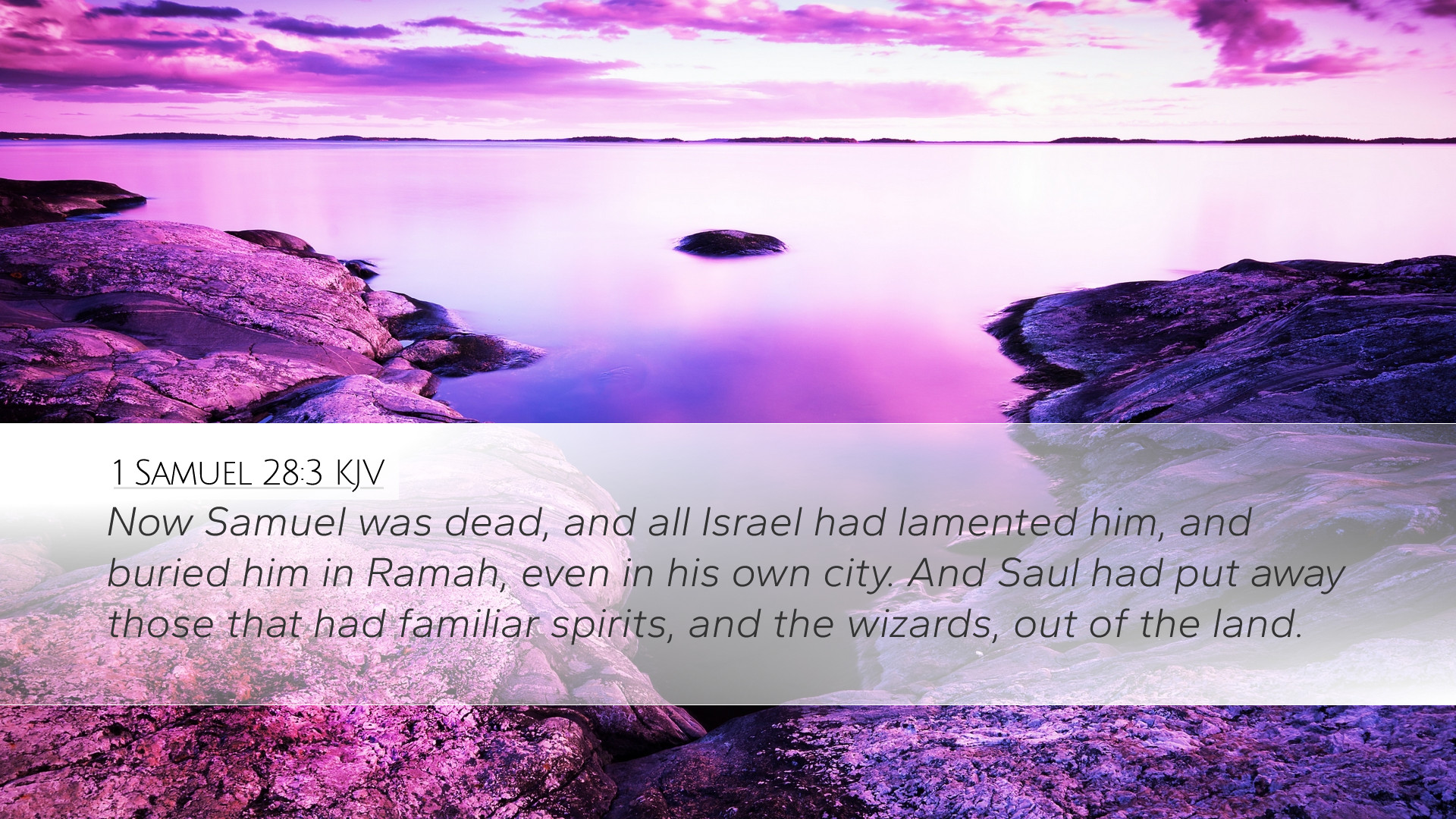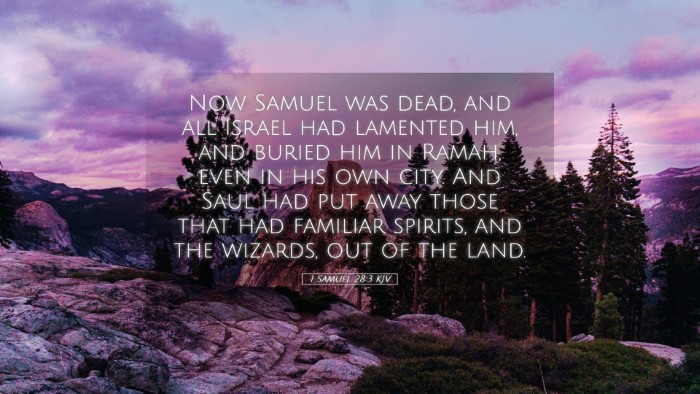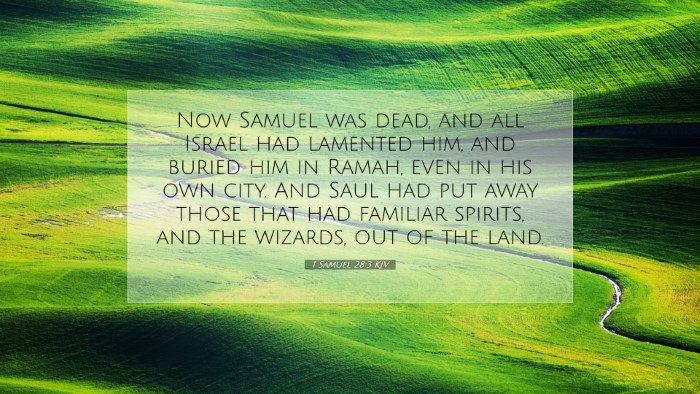Commentary on 1 Samuel 28:3
1 Samuel 28:3 states, "Now Samuel was dead, and all Israel had lamented him and buried him in Ramah, even in his own city. And Saul had put away those that had familiar spirits, and the wizards, out of the land."
Contextual Overview
This verse presents a significant moment in the narrative of King Saul. It captures the death of the prophet Samuel and Saul's actions regarding practitioners of necromancy. In understanding this scripture, we can draw insights from various public domain commentaries, which illuminate the theological and historical implications of these events.
Matthew Henry's Commentary
Matthew Henry emphasizes the weight of Samuel's death on the nation of Israel. He notes:
- The significance of Samuel: Samuel was more than just a prophet; he was the spiritual leader of Israel. His death marks a turning point, symbolizing a loss of godly leadership.
- The lamentation of Israel: The people's mourning indicates their recognition of Samuel's role and the void his absence creates within the community.
- Saul's eradication of necromancers: Henry points out that Saul’s efforts to expel those practicing familiar spirits reflect his knowledge of God’s law, yet his subsequent actions show a desperate deviation from divine guidance.
Henry further expounds that Saul's complex character is on display: though he tried to uphold God's commands, his eventual turn to witchcraft illustrates the extremes of despair he faced without God's direction.
Albert Barnes' Notes on the Whole Bible
Albert Barnes provides a theological reflection on the implications of Samuel’s death:
- Spiritual vacuum: Barnes argues that the removal of a prophet like Samuel leaves a vacuum in the spiritual oversight of Israel. Samuel served not only as a prophet but also as a moral compass for the nation.
- Saul's disobedience: The focus on Saul's decree against wizards highlights his inconsistent adherence to Yahweh’s command. Barnes underscores that while Saul sought to follow God's law outwardly, his heart strayed further into despair and disobedience.
Barnes poignantly notes the danger of straying from God’s guidance, indicating that such a path often leads to desperate measures, as seen in Saul's eventual resort to consulting the witch of Endor.
Adam Clarke's Commentary
Adam Clarke offers a detailed examination of the cultural and spiritual implications of this verse:
- Death of Samuel: Clarke positions Samuel’s death as a culmination of his life's work and a catalyzing event in Israel's history—a moment where the corporate spiritual state of Israel became pronounced.
- Saul's edict against wizards: Clarke stresses the irony in Saul's banning of necromancers and familiar spirits. While he attempts to follow the law, it stems from a place of fear and confusion.
- Israel's response: He notes that Israel's lamentation speaks volumes about their reliance on prophetic counsel and the role of divine messengers in their societal fabric.
Clarke's reflection reveals that Saul's actions, while seemingly opportune, only signal his increasing alienation from God, showing that even in a moment of self-preservation, he strayed further from the divine path.
Thematic Insights
From these commentaries, several profound themes emerge:
- Leadership and Mourning: Samuel’s death is tragic, not simply because he was a prophet but because he was the last stabilizing force for Israel at that time. The mourning reflects a deep-seated need for godly leadership.
- Desperation and Disobedience: Saul’s attempts to rid the land of sorcery while ultimately seeking a medium illustrate a critical aspect of human nature: when left without guidance, desperation can lead to disobedience.
- Spiritual Blindness: The actions of the people and Saul show the dangers of spiritual blindness and the need to maintain a relationship with God lest one fall into despair.
Conclusion
In 1 Samuel 28:3, we are presented with a deeply layered narrative that encourages readers—pastors, students, theologians, and scholars—to reflect upon the implications of leadership, community, and the dire consequences of choosing a path devoid of divine guidance. As Saul navigates the complexities of his reign, we are reminded of the crucial need for spiritual discernment and reliance on God, especially in times of loss and uncertainty.


